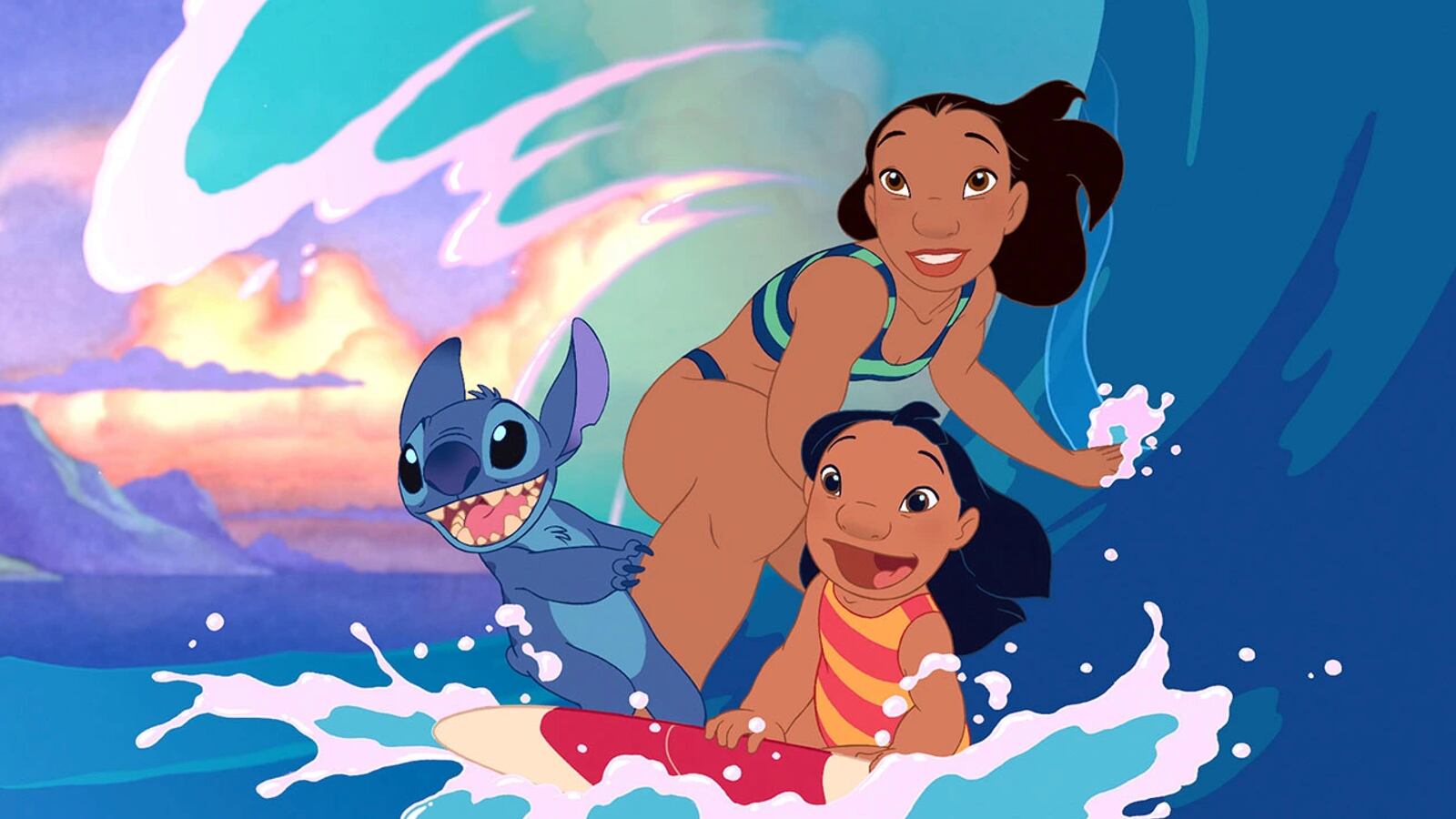Translating a perfect piece of animation into live-action filmmaking is always a challenge—and rarely one that anyone gets right. Disney’s effort to adapt 2002’s Lilo and Stitch into a live-action film, for instance, is already ticking everyone off, and it hasn’t even entered production yet.
It’s not just because Lilo and Stitch is one of the most beloved Disney animated films; it’s also that it’s one of the only Disney classics starring darker skinned, non-white characters. But fans are angry that the studio has already dropped the ball when it comes to the racial makeup of its live-action cast, especially following the announcements of major roles this week.
Lilo and Stitch tells the story of a Hawaiian youngster, Lilo, and her older sister, Nani. Nani is trying to prove to Child Protective Services that she is fit to be Lilo’s guardian after the sisters’ parents died, but rambunctious Lilo can’t stop making trouble. Things get even more chaotic when Experiment 626, a.k.a. Stitch, crashes on the island from outer space right in the middle of this drama, and Lilo adopts him as her disastrously unruly dog—even though, unbeknownst to anyone, Stitch is actually an alien criminal on the run.
Playing Lilo in the upcoming live-action film will be six-year-old Maia Kealoha, a Hawaiian actress. The reception to her casting, announced last week, has been positive; she’s cute, and she bears a resemblance to feisty Lilo.
But it’s the actress playing Nani that has Lilo and Stitch lovers riled up. Sydney Agudong, age 22, will play Lilo’s older sister in the film. While Nani is dark-skinned and strong in the animated version, Agudong looks comparably lighter skinned and thinner than her character. Her casting created an instant uproar, with some critics decrying Disney for seemingly whitewashing an iconically non-white female lead in a homogenous canon.
The outcry is more intersectional than it may seem. Agudong is biracial; she was born and raised in Hawaii, to a white mother and a half-Filipino, half-Hawaiian father. While Agudong identifies as Hawaiian—rightfully so—her mixed-race heritage plays a part in why fans are not happy with her casting. This falls in line with a long history of multiracial folks being themselves marginalized by groups that they should be allowed to claim themselves a part of, for not “fully” belonging to those groups. But the colorism prevalent in Hollywood does continue to favor light-skinned actors, multiracial or otherwise, and Agudong is undoubtedly benefitting from that.
Still, Native Hawaiians have come out online to defend Agudong against those who have tried to dismiss the actress, arguing that trying to qualify her indigenous status is irresponsible.
But the core issue is not Agudong’s ethnicity; Agudong is Hawaiian, no matter how you slice it. It’s that Disney had a chance to give a dark-skinned woman a lead role in a highly anticipated film and didn’t.
Following the news that Agudong would be Nani was that Kahiau Machado would play Nani’s boyfriend, David, who is also a dark-skinned Hawaiian in the film. While Machado is native Hawaiian, he also appears to be lighter than his animated counterpart. Worse, there are tweets going around alleging that he made anti-Black or otherwise racist sentiments on his now-deleted social media accounts. That obviously hasn’t helped Machado win over the already skeptical Disney fans scrutinizing this film.
Lilo and Stitch is currently experiencing the opposite problem that The Little Mermaid has suffered from. The upcoming live-action take on the 1989 classic stars Black singer Halle Bailey as the famously redheaded Ariel, prompting internet racists to cry foul. But inclusive casting is not a problem; it should be, in fact, encouraged.
Dark-skinned men and women are often relegated to the supporting cast in Hollywood films, if even that. And unlike Lilo and Stitch, whose characters’ Hawaiian heritage plays an important role in the film itself, The Little Mermaid is about fish people with no actual ethnicity. Of course folks are going to be upset, especially in a famously fair-skinned industry. (By the way, remember when Emma Stone played a Hawaiian woman in a movie literally called Aloha?)
Agudong and Machado might be great in the film, which remains undated. They also don’t deserve the harassment they’ve received on their public social media pages. But the consensus seems to be that their performances won’t change the fact that this is a missed opportunity for great representation, and possibly another win for colorism.
Keep obsessing! Sign up for the Daily Beast’s Obsessed newsletter and follow us on Facebook, Twitter, Instagram and TikTok.






